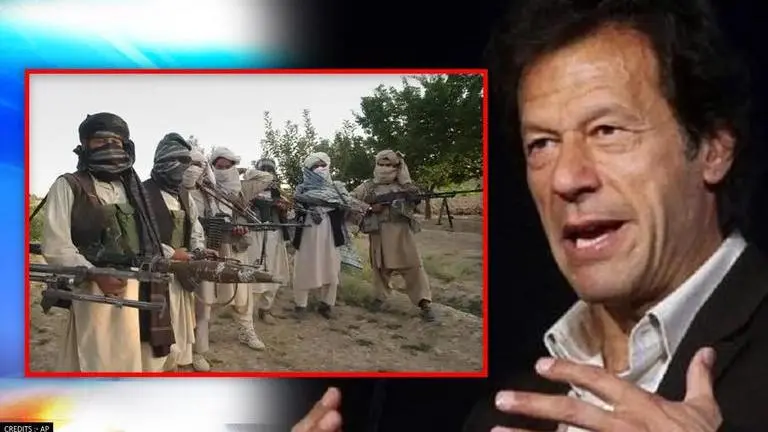Updated 19 June 2021 at 22:30 IST
Donations to Taliban rises in Pakistan as US prepares to withdraw troops from Afghanistan
Since US Military is in process of withdrawing troops from Afghanistan, the donations to the Taliban has increased significantly in Pakistan bordered regions.
- World News
- 3 min read

As the US Military is in process of withdrawal of its troops from Afghanistan, all is seemingly not well in the region as the donations to the Afghan Taliban forces have increased significantly in the regions bordering Pakistan, according to locals.
Voice of America (VOA) news, citing multiple sources and eyewitnesses, has reported that fundraising for the Taliban has continued in various parts of Pakistan.
One of the residents from Duki in Balochistan informed VOA that Taliban Militants stay with coal miners in the nearby mountains and come to the bazaar area every Friday to ask for 5,000-10,000 Pakistani rupees from shopkeepers which is equivalent to $50 to $70. Earlier this practice of seeking donations was restricted only to a few mosques but now the donations is being asked from shopkeepers as well.
A member of the Balochistan assembly which is a disputed territory under the control of Pakistan, has also said that Taliban militants openly hold fundraising campaigns in several districts of the province. According to VOA, the sources including Balochistan assembly members have requested anonymity due to the sensitivity of the issue and the fear of retribution from the Taliban.
Advertisement
A resident of Quetta said he has frequently seen Taliban militants at mosques, adding that once on a Friday, a Talib (Taliban member) with long hair gave a five-minute speech where he said others should support them financially as they were fighting for their cause. It is also being said that Taliban militants have become stronger since the US and NATO allies decided to withdraw their troops from the region.
However, donations are one of the many sources of funds for the Taliban. They collect double the tax gathered by Afghan authorities, from smuggling, transportation of oil, narcotics, weapons, and local cultivation and in Ramadan, they also receive huge alms from Islamic countries, a reporter and analyst of the Afghanistan-Pakistan region told VOA.
Advertisement
Pakistan as usual been in denial and maintained that it has strict laws to curb terror financing and that it prosecutes individuals and groups accused of fundraising for militants. It has even boasted of conducting high profile arrest of Hafiz Saeed and sentencing to 11 years in prison for terrorism-financing charges, however, several experts believe it is a cover to escape the Financial Action Task Force (FATF) blacklisting.
UN concerned about Taliban crisis
A panel of UN experts said this month that violence perpetrated by Taliban insurgents in Afghanistan continues to hamper the peace negotiations with the Afghanistan government. The U.N. experts, who monitor sanctions against the Taliban, predicted more violence in the run-up to their departure, raising a significant question as to how would the Afghanistan military manage without any external support.
A peace deal that Washington brokered with the Taliban and signed in February 2020 was aimed at bringing American troops home and ending more than four decades of relentless wars following the 1979 Afghan invasion by forces from the former Soviet Union.
Negotiations between the Taliban and Afghan representatives began last September in Doha, Qatar and continued earlier this year. But the Taliban announced on April 13 -- a day before President Joe Biden’s announcement that all U.S. troops would leave by Sept. 11 -- that it would not take part in any conference intended to decide the future of Afghanistan until all foreign troops were gone.
Published By : Pritesh Kamath
Published On: 19 June 2021 at 22:30 IST
